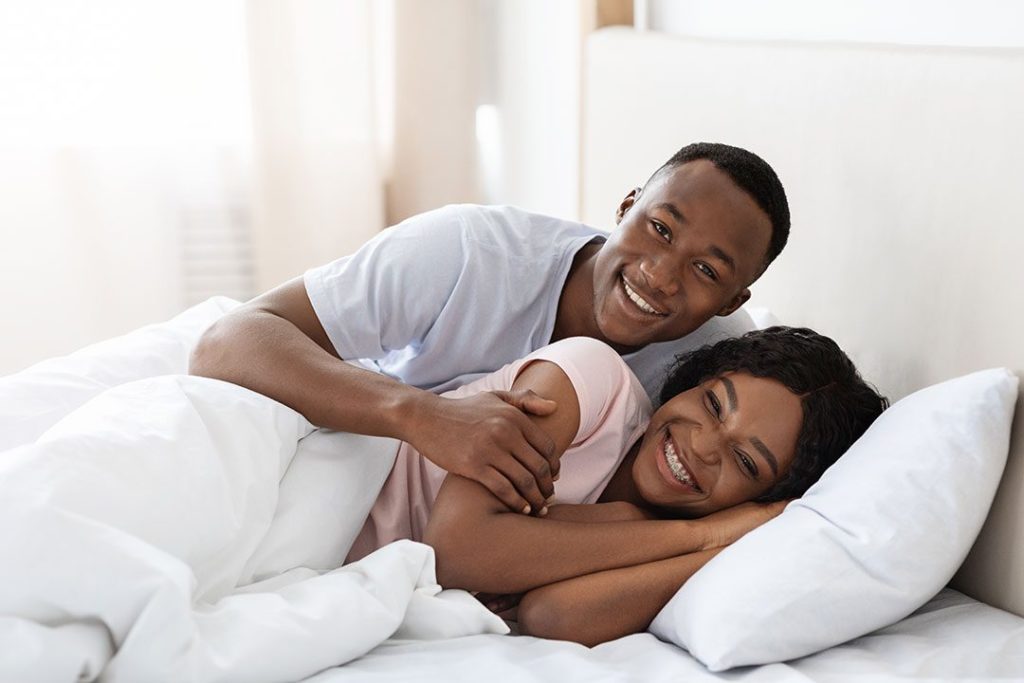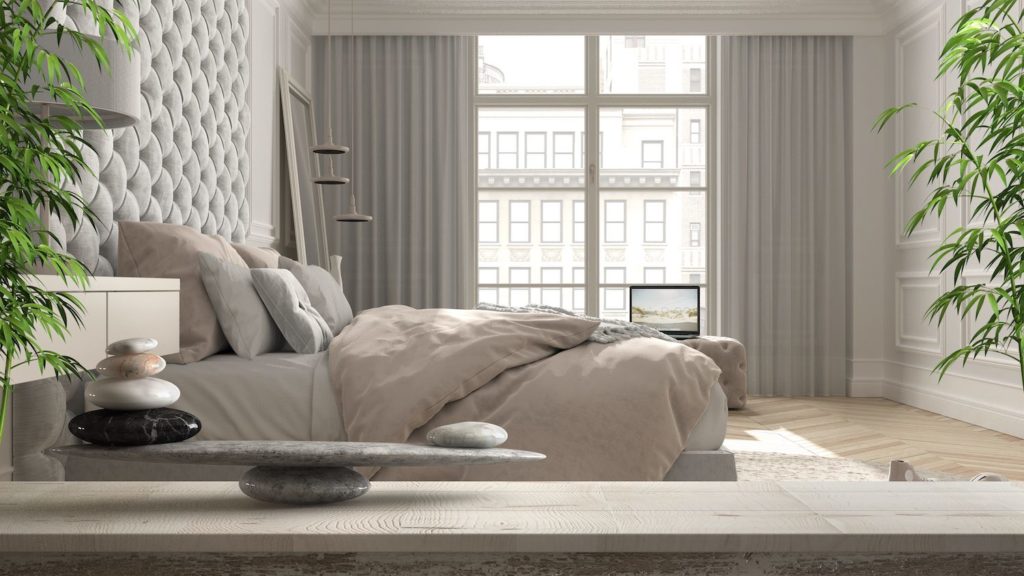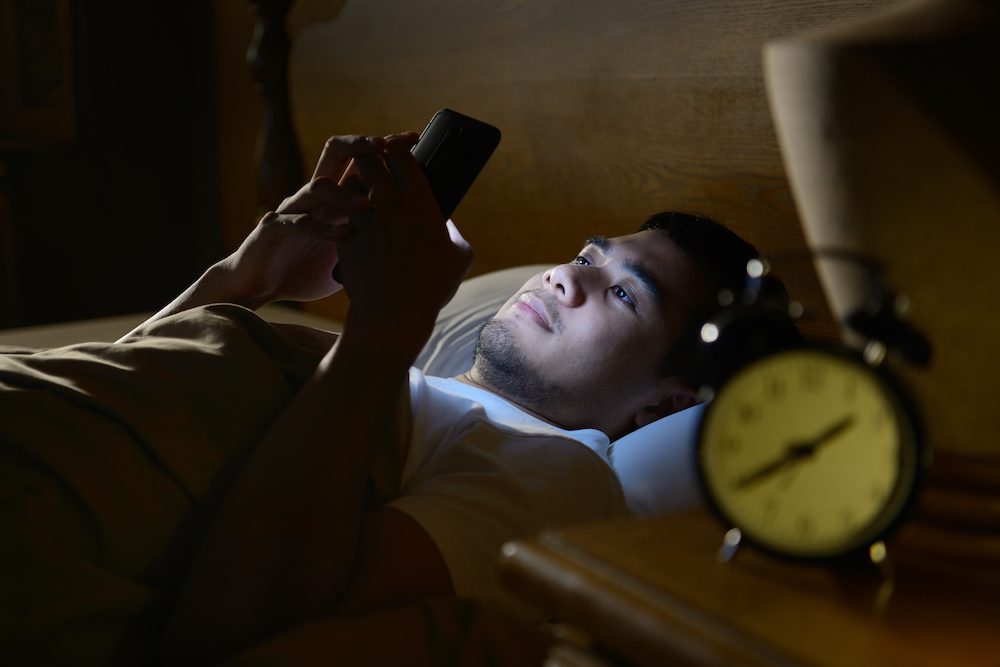Sleep is important for good health and proper functioning throughout the day, but it does not come easily to everyone. The Centers for Disease Control and Prevention recommend that adults get at least seven hours of quality sleep per night. More than 35% of adults in the United States attain less than the recommended seven hours of sleep in a 24-hour period.
There are many possible causes for temporary or prolonged sleep trouble, but insomnia is a common complaint, affecting around 30% of adults. Insomnia is a sleep disorder that can cause difficulty falling asleep, difficulty staying asleep throughout the night, or waking up too early in the morning. These symptoms often occur regularly, for weeks, with no clear cause.
There are many treatment options for insomnia, including stress reduction techniques, improved sleep hygiene, cognitive behavioral therapy, medication, herbal supplements, and hypnosis. In traditional Chinese medicine, acupuncture is commonly used as a treatment for different ailments, including insomnia.
Can Acupuncture Help You Sleep?
While there are some limitations, studies are finding acupuncture to be an effective treatment for insomnia. Acupuncture involves a practitioner inserting numerous thin needles into the skin to stimulate specific points of the body. Acupuncture is used as a non-drug alternative treatment for many different issues such as low back pain, neck pain, and knee pain. Some have used acupuncture to treat headaches, relieve cancer treatment side effects, and help with smoking cessation. Multiple studies demonstrate that acupuncture is both safe and effective.
Acupuncture is earning recognition as a useful alternative treatment for insomnia because it has fewer side effects than the medications prescribed for sleep and is generally easily available. Some commonly prescribed sedatives used to treat insomnia can cause a person to feel drowsy the next day, experience cognitive impairments, or become dependent on the drug.
A review of 46 trials, including 3,811 patients with insomnia, showed that acupuncture significantly improved sleep quality and duration when compared to no treatment, medications, or sham acupuncture. Treating insomnia with a conventional method of treatment and acupuncture may also be more effective than the individual treatment without acupuncture.
How Does Acupuncture Help You Sleep?
Modern medicine has had difficulty explaining exactly what happens in the body during acupuncture. Acupuncture may increase melatonin, a hormone that makes you feel sleepy. Another theory is that acupuncture enhances blood flow to certain sleep-inducing regions of the brain, particularly when the acupuncture is done on the scalp.
Chinese medicine explains why acupuncture helps to treat insomnia and other ailments differently. According to traditional Chinese medicine, our bodies are made up of thousands of acupoints which, when balanced, create “qi,” or vital energy. An imbalance blocks the flow of qi and acupuncture is said to rebalance the body’s flow and restore physiological functioning.
Pressure Points for Sleep
If acupuncture is not available to you or is not your preference, there are ways to stimulate the acupoints used in acupuncture without the use of needles. Chinese medicine uses massage or pressure on acupoints — called acupressure — to restore balance and qi. Like acupuncture, acupressure has been shown to improve sleep quality.
Acupressure massage can be done by a professional, a partner, or yourself and can be administered multiple times per day if desired. When stimulating acupoints, it is recommended to find a comfortable position, relax, take deep breaths, and use deep, firm pressure. Here are a few pressure points that are said to help with sleep or relaxation:
- Shenmen, “Spirit Gate” (HT 7): This point is the most commonly used in studies for insomnia treatment. There are two Shenmen points — one in the wrist and one in the ear. The Shenmen point on the wrist is located just below the hand, on the edge with the pinky finger.
- Baihui, “Hundred Meetings” (GB 20, GV20): Baihui is the second most common acupoint used in studies for insomnia treatment. Baihui is located at the highest point of the head, centered and in line with the tips of the ears.
- Yongquan, “Gushing Spring” (K11): Located on the bottom of the foot, this point is near the center of the sole. When your toes are curled, you can find yongquan in the small depression that appears just above the center of your foot.
Acupuncture and acupressure may be easy and effective alternatives or complements to insomnia treatments used in modern medicine, but more studies are needed to confirm current results. Still, acupuncture or self-massage with acupressure might be worth a try if you have exhausted other options.
However, if your insomnia is persistent, or you believe you might have an underlying sleep disorder, make an appointment to see your physician and find the best treatment plan that works for you.
References
Get Your Sleep Questions Answered Live on 4/30
Have questions about sleep? Get all your sleep-related questions answered in a Live Q&A on YouTube with renowned sleep expert Dr. Michael Breus at 5 p.m. PST/8 p.m. EST.









